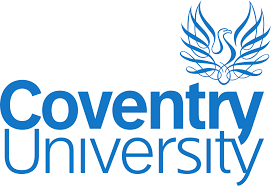Sociology and Social Research MA
Program Description
Why you should study this course
- We’ll explore natural and anthropogenic catastrophic risks such as climate change, pandemics, terrorism and violence, global population growth and economic recession. This includes socio-economic and political challenges such as the rise of polarising populism, punitive responses to crime and disorder and persistent social injustice linked to legacies of colonialism and widening wealth and generational inequalities. Individual and cultural responses to change including the clash of identity politics in a digitised cultural landscape and the emotional and cultural disruptions wrought by fluid bodies, sexualities and genders occupying real world and virtual spaces and situations complete these studies of the social complex.
- A key element of this flexible programme, is to equip graduates of the course with knowledge and skills that are valuable for entering the graduate job market. The course also includes a module on professional skills assured by the Institute of Leadership and Management.
- There is a focus on community engagement and developing networks in the public, private and charitable and voluntary sectors, which emphasises collaboration and co-creation in an inclusive learning community. Students will gain an understanding of how far academic ideas and research can travel and transform in social, political, cultural and professional contexts – especially in the form of evidence-based policy and practice.
- The course is situated in the School of Humanities which has a strong portfolio of academic research. Course delivery is by a team of experienced, active researchers, with a range of expertise in social science, who offer distinctive, research informed and innovative teaching, including researchers engaged in impactful projects on diversity, equality, and identities. They have a consistent record of teaching excellent and student satisfaction and for providing extensive academic and pastoral support.
On successful completion of this course, you will have knowledge of:
- Employability skills – module content, teaching delivery and modes of assessment will reflect the proposition that students are producers of knowledge obtaining an advanced and distinctive skill-set that can be applied in social contexts including the workplace. For example, the development of social research skills is emphasised through the opportunities students are given to create a digital ethnography, and through the programme’s core research training modules and final research project. Such social research skills - especially when embedded in a decolonised curriculum which does not privilege the research traditions of the Global North - have the benefit of being transferable to a number of national social contexts, both national and international. The course also has a dedicated vocational module with Institute of Leadership Management accreditation and there are multiple opportunities to develop all-important digital fluency – for example, through the production of digital portfolios.
- Creativity and enterprise - is an important part of the programme and there will be learning opportunities to develop skills in leadership, strategic thinking, planning and problem-solving. Students will also be encouraged to be resilient in the face of major social problems and rise to their challenge and to develop their communication skills to creatively disseminate knowledge to a variety of audiences. In addition, the course emphasises the importance of co-creation and students are given the opportunity to become stakeholders in course development and delivery. Creativity and enterprise will be modelled by staff who deliver modules and innovate new ways of teaching and learning – for example through hybrid delivery.
Admission Requirements
- Applicants should normally hold a good undergraduate degree, in a social science or humanities related subject, or equivalent international grade/qualification, from a recognised University.
- General Requirement :-
- Indian Students-Students must achieve 60% in a 3 Year Undergraduate Degree or 55% in a 4 Year.Undergraduate Degree Students from the following Universities will be considered with 55% in a 3 Year Undergraduate Degree (unless applying for Health and Life Science courses): Delhi, Mumbai, Kolkata, Chennai (Madras), Anna, Amity, Andhra Pradesh, Aligarh Muslim, Pune, Bangalore and JNTU.
- Arab Students-Students who hold a Bachelor’s Degree should have an average grade of 60% or above. Students who have an average grade of 70% or CGPA of 2.5 out of 4 for the Postgraduate Research programmes with a satisfactory research proposal.
IELTS Requirements
| Listening |
Reading |
Writing |
Speaking |
Overall |
| 5.5 |
5.5 |
5.5 |
5.5 |
6.5 |
Remarks:
Indian Students IELTS Waiver:-65% in Standard XII English language from certain examination boards only (Central boards, Maharashtra, West Bengal, Karnataka, Tamil Nadu, Andhra Pradesh, Kerala and Uttarakhand)
